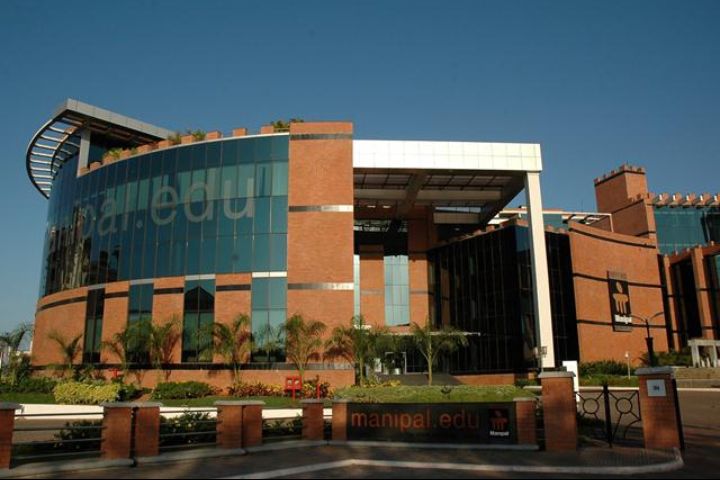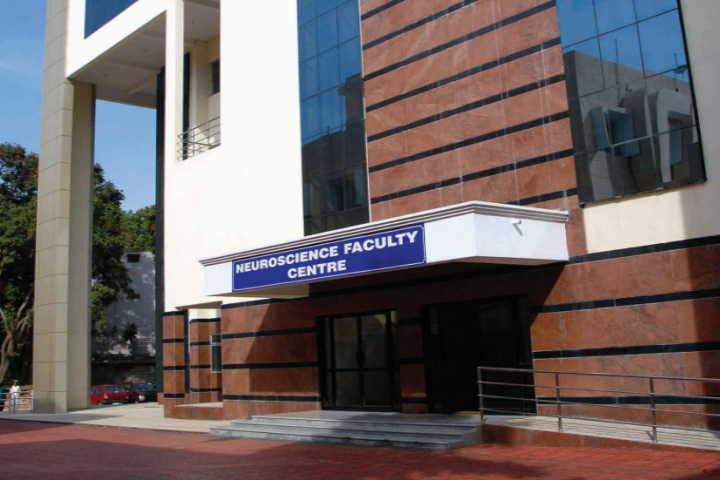What is Bio-physics
Biophysics is a specialised branch of medicine that aims to apply physics principles to understand biological systems. It combines biology and physics to explain the function of biological molecules, cells and the function. Candidates aspiring to pursue the Biophysics course. Professionals in this profession use tools and methods from physics to study lasers, microscopes, and computer models. They also study the structure and function of biological molecules, cells, and systems
Bio-physics has a broad scope, especially in the fields of medicine, biophysics, genetics, and environmental science. It helps in developing medical devices like MRI Scanners, in drug discovery, and in understanding diseases such as cancer or Alzheimer's, also helps in developing new treatments and improving healthcare technologies.
For students familiar with subjects like biology and physics, biophysics has been introduced in numerous institutions. The subjects deal with the fundamental knowledge of concepts taught in biology and physics, and their correlation. Numerous techniques and methodologies like X-Rays, MRIs and Laser treatments function on the principles of physics as well as biology. Therefore, a career in biophysics opens the door to multiple opportunities.
Top Private Biophysics Colleges in India with fees
Private colleges are known for their state-of-the-art infrastructure and quality education. In the table below, we have discussed the popular private Biophysics colleges in India along with their respective fee details.
Top Government Biophysics Colleges in India with fees
Government colleges are known for their quality education and nominal fees. Many students aspire to pursue their graduation from government institutes. In the table below, we have provided a list of popular government Biophysics colleges along with their respective fee details.
Eligibility Criteria (UG & PG) of Bio-physics
It is important for the candidates to fulfil basic eligibility requirements. Eligibility criteria differs depending on various factors such as the level of the programme, and the eligibility criteria. Discussed below is the undergraduate and postgraduate syllabus of Biophysics.
Eligibility Criteria for UG Courses
For admissions to undergraduate degrees in Biophysics, such as B.Sc (Bachelor of Science), students have to fulfil certain eligibility requirements. Discussed below are the eligibility requirements for undergraduate courses.
- The candidates are required to complete their 10+2 or an equivalent level of education with a relevant discipline as their major from a recognised board in India.
- They must obtain an appropriate percentile in 10+2 or equivalent with their major subjects as physics, biology and chemistry. This pertains to the undergraduate courses like B.Sc. and other certified courses in biophysics.
- The eligibility criteria might vary for different institutions. However, the qualifying percentile is set at 40-50 per cent aggregate.
- Some universities shortlist the applicants on the basis of the results of their examinations conducted annually for the selection process. The cut-off lists are released, and further admission procedure takes place.
- For reserved categories, the eligibility differs in terms of minimum required marks, cut-offs, etc.
Eligibility Criteria for PG Courses
Similar to undergraduate courses, students are advised to meet the eligibility requirements for postgraduate courses. Mentioned below are the eligibility details of postgraduate courses in Biophysics.
- Candidates who wish to pursue a postgraduate degree in Biophysics must achieve a minimum score of 50-55 percent in their graduating course.
- Several colleges like Jamia Millia Islamia consider the percentile score in their entrance exams.
- Several colleges also accept a bachelor’s degree with a minimum of 55 per cent marks.
Top Entrance Examinations for Biophysics Courses
There are no national-level entrance examinations for admission to Biophysics courses at undergraduate and postgraduate levels. Institutes generally conduct their own entrance examination or provide admission through merit-score.
Scope of Bio-physics in India and Abroad
A biophysicist is generally offered a stable pathway for further research and development purposes. Major recruiters have been offering good salary packages to biophysicists. Moreover, the job opportunities are offered through multiple job profiles, and the pathway for further research is always open. An individual can even work independently.
Course Fees Bio-physics
| Minimum Fees | Maximum Fees | |||
|---|---|---|---|---|
| Private | Government | Private | Government | |
| UG | ||||
| PG | ||||
| DOCTORAL | ||||
| DIPLOMA | ||||
Course Subjects
In this section, we will discuss the Biophysics syllabus at the undergraduate and postgraduate levels. Some of the subjects taught in Biophysics include Cell Biology, Molecular Biology, Bioinformatics, Numerical Methods, and Membrane Biology.
Biophysics Syllabus for UG Courses
In the syllabus of Biophysics, students study subjects such as Molecular Physics, Biostatistics, and Basic Biophysical Statistics. In the table below, we have discussed the undergraduate syllabus of BSc Biophysics.
| Microscopic Anatomy | Mammalian Physiology |
| Mammalian Physiology | Biophysical Chemistry |
| Physiochemical Techniques | Functional Anatomy |
| Second Year Biophysics | Medical Biophysics |
Biophysics Syllabus for PG Courses
At the postgraduate level, students study advanced-level subjects. Candidates are advised to check the official website of the provider of the programme brochure to know the course curriculum. In the table below, we have discussed the MSc Biophysics syllabus of AIIMS.
| Paper-1 | |
| Cell Biology | Molecular Biology |
| Bioinformatics | Numerical Methods |
| Dynamics of Non-Linear Processes | - |
| Paper-2 | |
| Elementary Crystallography | X-Ray Diffraction Methods |
| Proteins | Principles of Nucleic Acid Structure |
| Membrane Biology | Peptides-design, synthesis and applications |
| Paper-3 | |
| Mathematical Methods and Their Applications in Biological Systems | Quantum Biology and Its Uses |
| Quantum Chemistry | Theoretical Modelling of Biomolecular Systems |
| Spectroscopic techniques: | - |
Careers in Bio-physics
Biophysics is a demanding course and requires a key understanding of the concepts and theories. While making a choice of career, placements and recruitment play a key role. However, there is a popular demand for eminent job profiles in the industry. This is mainly due to the growing health problems in humans and advances in technology simultaneously. A few job profiles are listed below as per the field of biophysics.
Related
Upcoming trends
Biophysics is a topic that can benefit almost everyone in the medical field today. There has been extensive research in this field to keep up with the need for newer and improved innovations. Listed below are some of the upcoming trends in the course –
- Molecular Biophysics
- Membrane Biophysics
- Neuron Biophysics
- Bioenergetics
- Medical biophysics
Job Profiles and Top Recruiters
Health problems have been increasing massively day by day. Therefore, research is conducted to curb the health problems of people using technological advancements. Research occurs at the biomolecular, organismal and environmental levels. Therefore, an aspirant can work in multiple fields like biochemistry, biogeophysics, nanotechnology, system biology, agrophysics and biochemistry.
In the technical world, the scope of biophysics has gained massive momentum. Subjects like bioenergetics, radiation biology, biochemistry, software studies and programming have opened the door to immense career opportunities. The course is considered to provide immense stability since the research work depends on an individual’s choice. Some job profiles in Biophysics include: -
| Job Profiles | Job Description |
|---|---|
Biophysicists | Biophysicists are professionals who apply concepts from physics to study biological processes. They conduct research from molecular to organismal levels are conducted, and results are analysed for further advancements. |
Forensic biophysicist
| Forensic Biophysicist deals with the study of forensic articles collected during crime scenes and performs further experimentation. |
Medical biophysicist | A Medical Biophysicist studies are related to medical imaging, therapy methodologies, biomechanics and treatment of cardiovascular patients |
Biophysicist Researcher
| A Biophysicist Researcher deals with the overall study of the concepts of biophysics for further development of techniques and methodologies. |
Nutritional Biophysicist | Nutritional biophysicists focus on the aspects of food and nutrition. Nutritional values of food are analysed, and further developmental research occurs. |
Clinical Biophysicist
| A clinical biophysicist studies and analyses the biological action processes and their effects of physical energies used in therapeutic processes. |
Applied Biophysicist | An applied biophysicist deals with the study of applied research and its basics. The effects of substances like hormones and drugs on the biological aspects are studied. |
Top Recruiters
The recruitments of biophysicists and researchers occur mainly by educational institutions working rigorously on the research of techniques and their applications. Moreover, apart from the educational institutions, the following industries also have high biophysics specialists.
- AstraZeneca Pharma India Ltd.
- AstraZeneca Pharma India Ltd.
- Johnson & Johnson
- Abbot Laboratories
- Bristol Laboratories
- Bristol-Myers Squibb
- Boehringer Ingelheim India Pvt. Ltd.
- Baxter
- CPA Global
- Thermofisher
Average Salary
The average salary varies depending on various factors, such as work location, skills, and experience of the candidate. In the table below, we have discussed the average salaries of some of the popular job profiles.
| Job Profile | Average Salary |
|---|---|
| Biophysicsts | Rs. 5 LPA |
| Forensic Biophysicist | Rs. 3.5 LPA |
| Medical Physicist | Rs. 7.4 LPA |
| Researcher | Rs. 9.4 LPA |
| Nutritional Biophysicist | Rs. 2.7 LPA |
Salary Source: AmbitionBox
**The salary figures mentioned anywhere in this article are just for reference purposes. Please treat them as such. Actual salaries may vary depending on the respective candidates, the employer, job location and numerous other factors.
Required Skillset for Bio-physics
Candidates thinking of joining a biophysics course must know about the key requirements and relevant skill sets. Therefore, certain skill sets required for a biophysicist or a biophysics student are listed below.
- Critical Thinking
- Time Management Skills
- Analytical Thinking
- Computational Modeling
- Programming
Course Curriculum for Bio-physics
The initial semesters are used for the study of fundamental concepts and techniques. Post, the first year, detailed and complex subjects are taught. Knowledge is gained through theoretical knowledge and practical experimentation. Each semester is designed for encouraging the study of a diverse topic related to the field.
Popular Bio-physics Entrance Exams in India
Frequently Asked Questions (FAQs)
Question: How does a biophysicist generally do at work?
Answer :
A biophysicist performs ample tasks and research works dealing with several concepts and theories focusing on the principles of both biology and physics. However, several experiments and studies based on the physical phenomenon of living organisms, cells, etc. are conducted on regular purposes. Moreover, the analysis of vitamins comprising the physical bodies and constituents is also practised. A biophysicist also deals with the synthesis of hormones and minerals and determines the effects of nutrients on the physical bodies and their functions. Cell development, microbiology, body growth, ageing, death, etc. are also studied.
Question: What are the key areas in which a biophysicist specialises?
Answer :
Biophysics deals with the study of several complex concepts based on the subjects of biology and physics. These subjects are not taught at school-level and require core determination and experimentation for better understanding. The key areas in which a biophysicist specialises are molecular biophysics, membrane biophysics, neuron biophysics, bioenergetics, medical biophysics, etc. molecular biophysics deal with the study of physical aspects affecting the functioning of biomolecular structures whereas membrane biophysics focuses on the study of physical concepts dealing with the structure of biological membranes. Neuro biophysics deals with the study of nervous systems, whereas bioenergetics governs the energy transformation and exchange happening in the physical bodies and their surroundings. On the other hand, medical biophysics is based on the fundamental principles of subjects like physics, biology, mathematics, etc. and their effect on problems related to human well-being and health.
Question: How can one become a biophysicist?
Answer :
An aspirant must polish his core knowledge of the concepts of biophysics since the beginning of the education to become a biophysicist. The initial step for aspirants is to take science subjects during the schooling year. The major subjects offered in higher senior secondary schooling like physics, chemistry, biology and mathematics must opt. Moreover, a good aggregate percentile at the 10+2 schooling level is essential for further admission into a notable college or university.
Post the schooling, a candidate is advised to opt for B.Sc. in Biophysics. Several Indian, as well as foreign colleges, offer a BSc degree in Biophysics. After the successful completion of a BSc degree with a good percentage in the core subjects, a candidate can opt for further studies. MSc in biophysics is offered by numerous institutions for 2 years. For further studies, an MPhil or PhD degree for higher qualification and independent research work.
Question: What is the future scope of the subject?
Answer :
Biophysics has gained momentum in recent times and has achieved a great degree of positive scopes. The hardcore subjects of physics and chemistry are studied in the core subjects like bioenergetics and instrumental physics. Several concepts that help in the characterisation of reactions, processes, computer bases, software, etc. in the study of bioinformatics also help biophysics students in opening the doors to future possibilities and eminent research work. The learning of biochemistry itself helps in the adopted futuristic pathways in further developments. Apart from these major subjects, radiation biology also helps aspirants in opting for this specific line of course. The pathway of career opportunities in the field of biophysics is wide.
Question: How complex is the study of biophysics?
Answer :
Biophysics is a demanding course and requires a key understanding of the concepts and theories. The subjects require a quantitative and mechanical understanding of experiments and methodologies. The course is challenging since the experimentation results and procedure may vary from one person to another. Therefore, the study does not entirely depend on the bookish concepts and theories stated. Physics and mathematics themselves are tough subjects, and their application in the study of biophysics helps in achieving better results and knowledge. Since, the course is a cluster of various disciplines, therefore the learning and understanding complexity increases.
Questions related to Bio-physics
I am b. sc radiotherapy and technology graduate. can i get admission to m. sc biophysics?
Hello aspirant,
Yes, a graduate of radiotherapy with a B.Sc. can usually pursue an M.Sc. in biophysics. Your knowledge of technology and radiotherapy gives you a strong basis for comprehending the fundamentals of biophysics, which is the application of physics to biological processes.
Thank you
Hope it helps you
career prospects after msc biophysics?
Hello!
These are some of the career options you can choose after completing M.Sc. Biophysics-
- Biophysicist
- Researcher
- Applied biophysicist
- Clinical biophysicist
- Bioengineer
- Medical biophysicist
- Forensic biophysicist
- Nutritional biophysicist
- Scientist
Hope this information will help you.
How is the MD biophysics at AIIMS
Hello aspirant,
The MD biophysics is one of the best course taught in AIIMS, Delhi. Doctor of Medicine(MD) in Biophysics is a 3 year full-time post graduate degree in the domain of medicine commonly known as MD. The Examination for M.D. is held at the end of 3 academic years which includes 6 academic terms.
The Placements highlights for MD Biophysics in AIIMS is as follows :
For Post-Graduation (2 years) programmes, 5 students got selected out of 77 for higher studies.
· A total of 56 students graduated Ph.D in 2017-18, while it was 82 last year.
· No. of graduating students in DM/M. Ch increased to 90 this year from 77 last year.
Further, to know more about the MD biophysics course at AIIMS in detail, you cna follow the below mentioned link to know more : https://dqxeclau.top/university/all-india-institute-of-medical-sciences-new-delhi
i hope that this will help,
which stream is more scope in biotechnology and biophysics.
Forensic Science Technicians
Medical Scientists
Microbiologists
Environmental Biotechnologist
Geneticist
Molecular Biotechnologist
Epidemiologist
R&D Scientist
Biophysics is a molecular science. It seeks to explain biological function in terms of the molecular structures and properties of specific molecules. It applies the principles of Mathematics, Chemistry, Biology and Physics to study the living things and organisms. Biophysics is slowly emerging field in India and it still needs a lot of development on both experimental , theoretical and computational fronts. The average biophysicist gross salary in India is 11,27,467 or an equivalent hourly rate of 542.
Finally it depends on your field of interest, but according to me a career in biotechnology is more beneficial in India.
what is defence between biotechnology and biophysics
Hello Aspirant..
Biotech is the application of chemistry techniques to alter the contents of cells. The goal of biotech is to employ technology to modify biological materials. Biophysics is the application of physics techniques and concepts to the study of biological systems. This ranges from very applied (e.g., medical physics - creating imaging devices such as MRIs or radiation dosimetry for cancer therapy) to somewhat abstract (using statistical mechanics to predict how proteins fold) to very abstract (using statistical mechanics to predict how proteins fold) (studying how birds distribute themselves in a flock and fish in a school).
I hope this information helps.
Regards,







.jpg)





 Answer later
Answer later
















